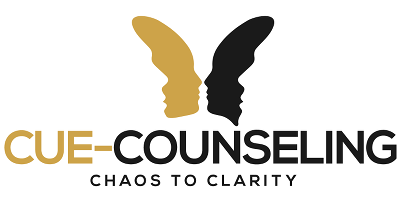Why Paying Cash for Therapy May Benefit You
Understanding the Advantages of Private Pay Mental Health Services
When it comes to mental health care, many people automatically turn to their insurance plans to cover the cost of therapy. However, paying “cash” or using direct pay for therapy offers several important benefits — especially when it comes to privacy, flexibility, and control over your care.
Despite the term, “cash” clients can pay using a variety of methods including credit cards, checks, PayPal, Venmo, or health savings accounts (HSAs). What “cash” really means is that you are choosing not to involve insurance in your mental health services — and that choice can be empowering.
1. Protecting Your Privacy
One of the most valuable benefits of paying for therapy out-of-pocket is enhanced privacy and confidentiality.
When you use insurance to pay for therapy, your provider must submit documentation to your insurance company, which typically includes:
-
A formal mental health diagnosis code
-
A detailed treatment plan
-
Progress notes or session summaries (when requested)
This information becomes part of your permanent medical and insurance record, which can potentially be accessed in the future by other insurers, healthcare providers, or under certain legal circumstances.
There is no diagnosis code for “I want to work on myself” or “I’m feeling overwhelmed after a breakup.” Yet, to use insurance, your therapist is required to assign a clinical diagnosis — even when your reason for therapy is simply about life’s everyday challenges.
2. Greater Control Over Your Care
Paying directly for therapy puts you in full control of your mental health treatment. That means:
-
No third-party approval or limitations on session length or frequency
-
No requirement to justify your progress or treatment goals to an external reviewer
-
The freedom to explore personal growth without being labeled with a clinical diagnosis
-
Full transparency between you and your therapist, with no outside interference
This level of control is especially important for clients who want a judgment-free space to work through life transitions, relationship challenges, or self-exploration — not necessarily a mental health “condition.”
3. Protecting Your Career and Future Records
For professionals in sensitive fields — such as law enforcement, the military, education, or government roles — having a formal mental health diagnosis on record may raise unnecessary concerns or create future complications.
When you pay out of pocket for therapy:
-
Your records are not shared with insurance
-
Your diagnosis is not automatically added to your medical history
-
Your information stays private between you and your therapist unless legally compelled by a judge
If privacy is a priority, direct pay therapy offers the highest level of discretion.
4. Therapy on Your Terms
With private pay therapy, you can:
-
Choose a provider who aligns with your needs — not just one in-network
-
Start therapy right away, without waiting for insurance approvals
-
Set goals that match your personal growth, not just diagnostic criteria
-
Maintain full ownership of your mental health journey
This flexibility allows therapy to be customized and client-centered, rather than dictated by policy guidelines.
Final Thoughts: Is Paying Cash for Therapy Worth It?
Yes — if privacy, freedom, and autonomy matter to you. Paying for therapy without involving insurance offers unmatched confidentiality, personal agency, and the ability to seek help without needing a diagnosis.
At Cue Counseling, we honor the reasons you come to therapy — even when they don’t fit into a clinical box. If you’re looking for support, healing, or simply someone to talk to without strings attached, direct pay therapy might be the right path for you.
📞 Call us at (863) 937-3943 to learn more about our self-pay options and flexible scheduling.
